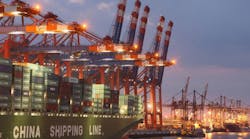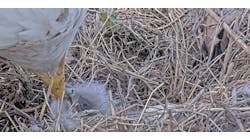The EU reached a landmark agreement on October 2 on tough new rules against cheap imports in a move that risks embittering already tense relations with Beijing.
The European Commission, EU national governments and MEPs had been in talks since July on new rules to calculate import duties and curb unfair trading practises, especially from China.
"Europe stands for open and fair trade, but we are not naive free traders. Today we strengthened our anti-dumping rules," European Commission chief Jean-Claude Juncker said.
Juncker insisted that the measure was "not about any country in particular,, and "simply about making sure that we have the means to take action against unfair competition."
But the EU has been under intense pressure from big industry in Europe to keep strong trade defense measures due to China's public subsidies and excess production, especially in steel and other metals.
"We believe that the changes agreed today to the legislation strengthen EU's trade defence instruments and will ensure that our European industry will be well equipped to deal with the unfair competition they face from dumped and subsidised imports...," EU Trade Commissioner Cecilia Malmstroem said after talks ended in the eastern French city of Strasbourg.
The new measures are intended to offset the consequences of granting China so-called market economy status at the Word Trade Organization that will make it more difficult to prove illegal trade practices by Beijing.
The topic is so sensitive that China shocked the EU at a summit in June by refusing to endorse a joint statement on climate change out of dissatisfaction on the status issue.
When China joined the World Trade Organization in 2001, it was written into the terms of the deal that member states could treat it as a non-market economy for 15 years.
Under this regime, the EU and other WTO powers retained powers to unilaterally establish fast and tough anti-dumping rules without infringing WTO rules.
The deadline passed late last year, but the European Union intended to grant the new status once these new rules were in place.
Beijing has said previously that the refusal to grant China market economy status is an example of "covert protectionism" and "double standards" by the West.
Copyright Agence France-Presse, 2017



